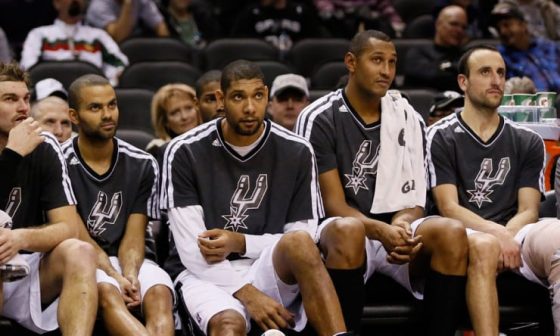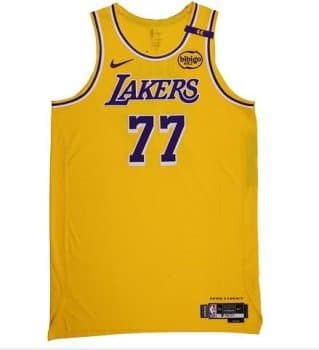NBA
NBA Sunday: Seeding Rules Change Needed

With Game 7 tied, his heart racing and his team facing the prospect of elimination, Chris Paul summoned everything he had left in his body. He had given everything to this endeavor and, even with one good hamstring, knew he had come too far to walk away defeated. Over the outstretched arms of Danny Green and Tim Duncan, Paul, somehow, managed to sink the shot that sunk the San Antonio Spurs.
Their hopes of a repeat once again dashed, the Clippers head to Houston while the Spurs head home.
Now, the question is whether the subsequent playoff series that we will take in will be able to live up to the entertainment value of what we just witnessed.
In all likelihood, it will not, but the bigger and most important issue is that the NBA should never find itself in such a predicament in the first place.
Rest assured, this is something that Adam Silver will look at closely, as soon as this summer. Especially with the Southwest Division becoming, far and away, the most competitive division in the entire league.
* * *
The Charlotte Bobcats became the NBA’s 30th franchise back in 2004 and with their inclusion came realignment. At that time, the NBA opted to realign from four divisions to six, adding the Southeast Division to the Eastern Conference and the Northwest Division to the Western Conference. The Midwest Division was renamed the Southwest Division and teams were more or less geographically aligned.
At the time, the league implemented a simple rule to award division winning teams. The winners of each of the three divisions would receive the top three seeds for the purpose of playoff bracketing. On its face, the decision seemed to make sense, but what the practice did, unfortunately, was overlook the issues related to competitive balance.
By virtue of the NBA’s scheduling practices, each team (“Team X”) plays the other teams in their division four times. Of the remaining 10 teams in their conference, Team X plays six of them four times, and the other four only three times. In effect, teams will play 52 games against the teams in their own conference and the other 30 games against teams in the other conference.
Those 52 intra-conference games, though, are not all created equal.
For example, this past season, the Spurs played four games against every other team in the Western Conference except except for the Golden State Warriors, Oklahoma City Thunder, Los Angeles Lakers and Utah Jazz.
The Memphis Grizzlies played three games each against the Warriors, Denver Nuggets, Minnesota Timberwolves and Phoenix Suns. In other words, by virtue of that scheduling rule and the fact that there are four teams which will only play against Team X three times (and not four) inherently creates scheduling imbalance.
The league works hard to distribute games in such a way that maintains competitive balance, but it is an imperfect science that will always be open to ridicule in some shape or form. The Clippers, for example, only played the Pelicans three times this past season, as well as the Mavericks. In a season where second and third seeds and fifth and sixth seeds in the Western Conference were each determined by tie-breakers and the two couples were each separated by one game, it is fair to say that each and every game counts.
Had the Clippers played the Pelicans four times and, say, the Jazz only three times, they may have lost another game and that one game could have made all the difference.
For the league, again, this is an imperfect science. Any system will have flaws that an intelligent mind can ponder and expose. The most that one can hope for in building out such a complicated competition structure is to find a system whose flaws are not detrimental to the product, at large. In other words, for the NBA, having playoff seeds determined by an imbalanced scheduling scheme is a practice that has made sense for quite some time.
At this point, though, it may have outlived its usefulness. As it relates to playoff seeding, when the league drew the conclusion that it needed to revisit something the last time, it also happened to involve the Spurs.
Even back then, the league acted quickly and swiftly.
* * *
Beginning with the 2003-04 season, the NBA implemented its six-division system. Since then, the Southwest Division has featured the three Texas teams, along with the Grizzlies and New Orleans Pelicans.
Traditionally, the Southwest Division has been the league’s most competitive, very often featuring at least four teams with at least a 45 percent win rate. This past season, the fifth placed team in the Division was the Pelicans, who finished the season with a 45-37 record.
For the first time since the league went to a six-division system, all five teams from one division qualified for the postseason. To say that the Southwest is “competitive,” all things considered, would be an understatement.
Traditionally, the Spurs and Mavericks have been the top two teams in the division, routinely winning in the neighborhood of 60 games. The seeding rules, however, have always adversely affected their playoff bracketing.
In the 2005 playoffs, the Phoenix Suns were the rightful top seed with 62 wins. The Spurs ended the season 59-23 while the Mavericks were 58-24. With a 52-30 record, the Seattle Supersonics won the Northwest Division, earning the third seed despite having the fourth-best record. It didn’t seem to make much sense at the time and immediately caught the attention of the focused observer.
Over the course of the 2005-06 season, though, with the Spurs and Mavericks both dominating, there were whispers of what transpired the year before, and the concerns were eventually proved valid: things were much worse in the 2006 playoffs.
That year, the Spurs completed the season 63-19, while the Mavericks finished 60-22. By virtue of their winning their divisions, though, the Suns (54-28) and the Denver Nuggets (44-38) were awarded the second and third seeds, respectively. The end result was the Mavericks being seeded fourth, despite having the conference’s second best record. That they were seeded behind the Nuggets—a team they were 16 games better than during the regular season—was laughably bad.
As the first and fourth seeds, the Spurs and Mavericks were matched up in the second round and engaged in a phenomenal seven-game series that should have been preserved for the Western Conference Finals. The league saw the flaw in its seeding methodology and, after these two years, changed the rule.
Since then, the league no longer awards the top three seeds to the division winners. Instead, the division winners are guaranteed a top-four seed, meaning that if a team that does not win its division has a better record than a team that does win its division, the non-division-winner can leapfrog the division winner in the standings.
We may as well call that “the Mavericks Rule.”
Now, however, with the Southwest Division clearly the most competitive in the league, it is time to readdress this issue and ask an important question…
Why reserve a seed for a division winner, at all?
While it is understandable that there should be an award for winning a division, teams endure a seven-month regular season while most fans struggle to stay engaged during its entirety. The entire struggle—from training camp, to preseason to the dog days of the regular season—are all done with an eye toward the postseason.
And once there, something as important as playoff seeding and bracketing should not be determined by arbitrary rules that have outlived their usefulness.
It is safe to say we have reached that point.
* * *
This past season, despite having the sixth-best record in the conference, the Portland Trail Blazers were awarded with the fourth seed and matched with the Memphis Grizzlies. Although the Blazers were not at full-strength from a health standpoint, the overall quality of play and competition over the course of the five-game series was pitiful.
The Spurs and Clippers being cross-matched in the first round was a natural byproduct of the Blazers being awarded the fourth seed and it has caused the league to fully examine and address the issue, with Commissioner Silver likely offering insight as to the internal discussions being had when he addresses the media during the 2015 NBA Finals.
Had the Blazers been rightfully seeded sixth and the conference ranked based solely on win-loss record, the Warriors and Pelicans and Rockets and Mavericks would have still been cross-matched.
The major difference is that the Grizzlies and Spurs would have engaged as the fourth and fifth seeds, respectively, while the Clippers (as third) would have drawn the Blazers (as sixth).
Of course, with their age catching up to them and attrition taking its toll, the Spurs may have lost to the Grizzlies in the first round, ultimately meeting the same fate. At least if they had, though, the only questions that would have been asked would have been whether or not the Grizzlies are capable of winning the conference. There would, at the very least, not be any questions related to how it is that two of the top three teams (at least, arguably) were cross-matched in the first round.
The potential of similar occurrences in the future make this something impossible to ignore. Keep in mind, even the seventh-seeded Mavericks (50-32) finished the regular season just one game worse than that Blazers. The team with the seventh-best record being awarded the fourth seed would be an even bigger travesty than the one we just witnessed. But as the Pelicans continue to improve, the Northwest Division may very likely produce a division winner that is far inferior to even the fourth-best team in the Southwest. And this would certainly be true if LaMarcus Aldridge bolts Portland and/or Kevin Durant opts to flee Oklahoma City.
* * *
What is most amazing to consider about the Spurs is how much it took to eliminate them from the postseason in two of the last three seasons. It took a miraculous shot from Ray Allen in Game 6 of the 2013 NBA Finals, followed by a miraculous performance by LeBron James in Game 7.
In 2015, it took Chris Paul playing the entire series as a man possessed and, even with one hamstring, willing his team to victory in a hard-fought Game 7.
Overcome with emotion afterward, now in his third time against Tim Duncan and Gregg Popovic, Paul had finally emerged victorious. It was a series that would negatively impact his legacy if he lost, and he simply refused to allow that to happen.
As his Clippers get set to do battle with the Houston Rockets, as NBA fans, we can only hope that the next series lives up to its first round predecessor.
And as we keep our fingers crossed, hope for something else—pray that the NBA uses its noggin and addresses one of the weaker points of its competitive scheme and does away with a rule that has outgrown its usefulness.
In the end, everyone—except the team that does not deserve its high seed—will win.
That may be upsetting to teams in the Northwest Division, but I’m sure we can all live with that.











